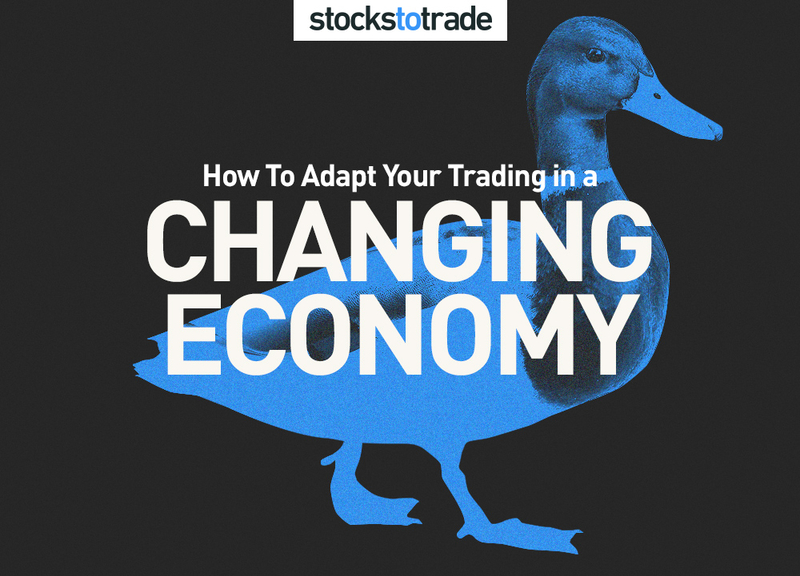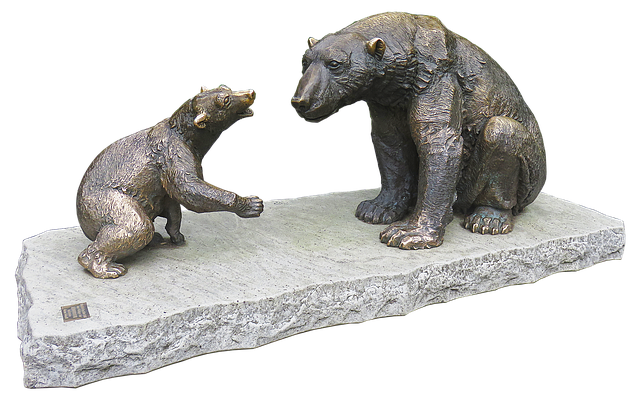A lot of people don’t like change — especially a changing economy. Traders and investors fear rocky economic times and recessions.
No one loves a down market, but it’s no excuse to go into full panic mode.
Here’s the thing: The market moves in cycles. There are good times and bad times. That’s just a fact of life, markets, and trading.
What you need to know, trader, is how to soldier on in any changing economy. So let’s peep some major do’s and don’ts. Read on.
Table of Contents
The Economic Cycle
When times are good, companies can get cocky — and even lazy. And so can traders for that matter. Companies have easy pickings … They can get wealthy, fat, happy, and sometimes sloppy.
Competitors then often pile into already greased industries. The expansion can be crazy, unchecked, and even unstable. It’s not always the best growth, and recessions can cut out the excess. That’s not necessarily a bad thing.
For traders, there can be plenty of meaty trades. You still gotta trade like a sniper, but you’re likely not waiting too long in between trades.
Now for a hefty dose of reality … the good times won’t last.
Industries and the economy will overheat — it’s just inevitable. At a certain point, expansion and growth just aren’t sustainable anymore. Think of the housing bubble or the dot-com boom.
And even though we logically know a down market will come at some point, we still tend to let it grab hold of our emotions when it starts to tumble. We lose our heads and make foolish trading decisions.
But panic doesn’t have to be part of your cycle. You just have to learn to educate yourself and prepare.
That means you have to adjust your mindset and keep your emotions in check — no matter what the economy is doing.
That said, let’s get into some solid go-to tips for a changing economy.
Trading Mistakes
We’ve all been there. There’s not a single trader who hasn’t made a ton of mistakes…
What you can do? Learn from the traders who’ve gone before you AND learn from your own past. (BIG hint: keep a trading journal to track and research your trading record.) That said, here are a few downmarket don’ts…
Freaking Out
One of the worst reasons to trade is because you’re freaking out. The markets are falling and there will never be a good trade again!
Come on. Smart traders learn how to trade through anything.
Emotions can play a big role in our trading — especially when it comes to losing. So if a down market leads to losses, don’t panic. We all lose sometimes. There’s not a single trader with a perfect record.
Remember to do your research, make thorough trade plans, and only take trades that fit your criteria.
Stay disciplined. Don’t trade as a knee-jerk reaction, just because you think you should, or because someone says you should. Do your own due diligence. Keep a close eye on your watchlist, the charts, the fundamentals, and the overall market.
Trading for the Sake of Trading
Another huge trading fail is trading when you’re excited or bored. Slower markets can mean more time between trades — and that can make you antsy.
Remember your sniper mode. Wait for the best setups. Don’t trade blindly.
Instead, use your time wisely. More time between trades can mean more time for you to beef up on your stock market history. It can also be more time to seek out different trading opportunities…
Not all strategies will work in all markets. So if there’s a tactic you think would work better for you in a slow market, like short selling, do your research. Test out the strategy with paper trading or small positions.
Smart Practices for Smart Traders
Tune Out the Gloom and Doom
People feed on fear. It sells. And in sour markets, you can feel constantly bombarded by all the bad news. The media just eats it up — the sky is falling!
Should you ignore the news altogether? Probably not. It’s a big catalyst for a lot of stocks, and it’s a valuable part of your stock research. But you can learn to be more selective about your sources. Don’t hesitate to turn down the volume on the fear and loathing.
And it’s not just the media. We see it on social media, too. What you have to do is learn to cut out the noise. Separate out what’s really valuable to you as a trader.
Even if you don’t buy into all the negativity, it can eat away at you subconsciously. Learn to hone your focus. Add some exercise into your day.
Take this time to concentrate and work on your trading: figure out what works for you and what doesn’t.
You can also use this time to study up on charts. StocksToTrade has an awesome feature to export charts. Don’t have StocksToTrade? Get your 14-day trial for just $7 today!
Shake Up Your Portfolio
Traders and investors can make big money in a changing economy.
But that may mean you have to look at different sectors than what you normally trade. You gotta learn to think smart. Watch for the big percent gainers — they may not be in the sectors or stocks you expect.
What tends to go down in a recession? As a rule, when markets drop, luxury items follow. Think electronics or high-end goods and services like retail and travel.
More stable industries cater to what’s essential, like health care, food, and utilities. Look for companies that produce things people need no matter what.
When the market shifts up again, you can likely jump back into some of those non-essential industries, if that’s what you prefer. But don’t hesitate to change if your go-to stocks and plays just aren’t working.
And always avoid putting all your eggs in one basket.
Change Up Your Trading Strategies
Down markets tend to be shorter than up markets. So as things are growing and rosy, it’s easy to sink in get comfortable. Too comfortable, maybe. You can be lulled into a false sense of security.
You have to stay on your trading toes. ALWAYS. Education is always important. And there’s nothing like a rocky economy to remind you of that.
So if a changing market upends your trading game, you need to change your trading strategies. Short-term trades can work better in a market that’s lacking in certainty.
Short selling is one of those strategies: but know exactly what you’re doing first. If the stock doesn’t tank as you expect, your losses can be astronomical. Do your research. Build a solid thesis. Make a trading plan and stick to it.
The Bottom Line
Everyone loves to jump on the ‘gloom and doom’ bandwagon when the market gives the slightest sign of turning south…
And there’s no doubt that you have to be smart about how you trade in a changing economy. Can it be done? Absolutely.
Here’s what every savvy trader should do, no matter what’s happening in the markets:
- Focus on your education. StocksToTrade Pro is our elite trading community. It’s a great way to find mentorship, like-minded traders, and education every single day. You don’t have to face the markets alone!
- Scan the markets every day. The StocksToTrade platform can help you find the biggest movers, build watchlists, track news — all with amazing charting features.
- Practice. Changing markets can mean changing strategies. Don’t just jump in feet first. Test everything with paper trading or small positions.
- Use technology. We live in the golden age of tech, and it can be a huge help to traders. Check out StocksToTrade’s awesome service powered by Oracle’s super-smart algorithms that can help you find hot stocks every day.
Navigating a changing economy isn’t easy. You need help. So arm yourself with smart technology and align yourself with traders who think before they just react.
What’s your plan for trading in a changing economy? Leave a comment on how you’re preparing for slower markets!





